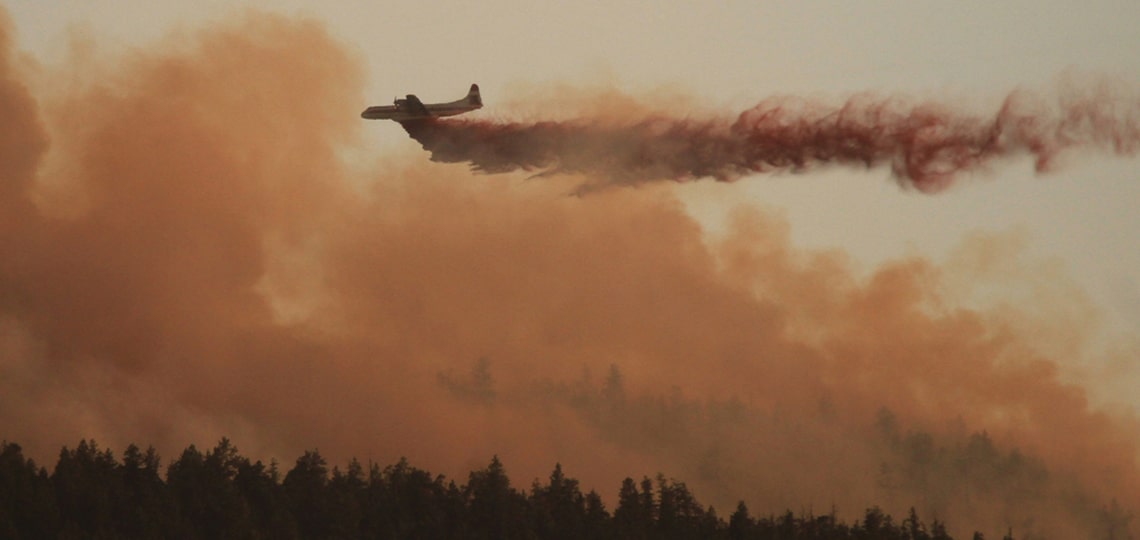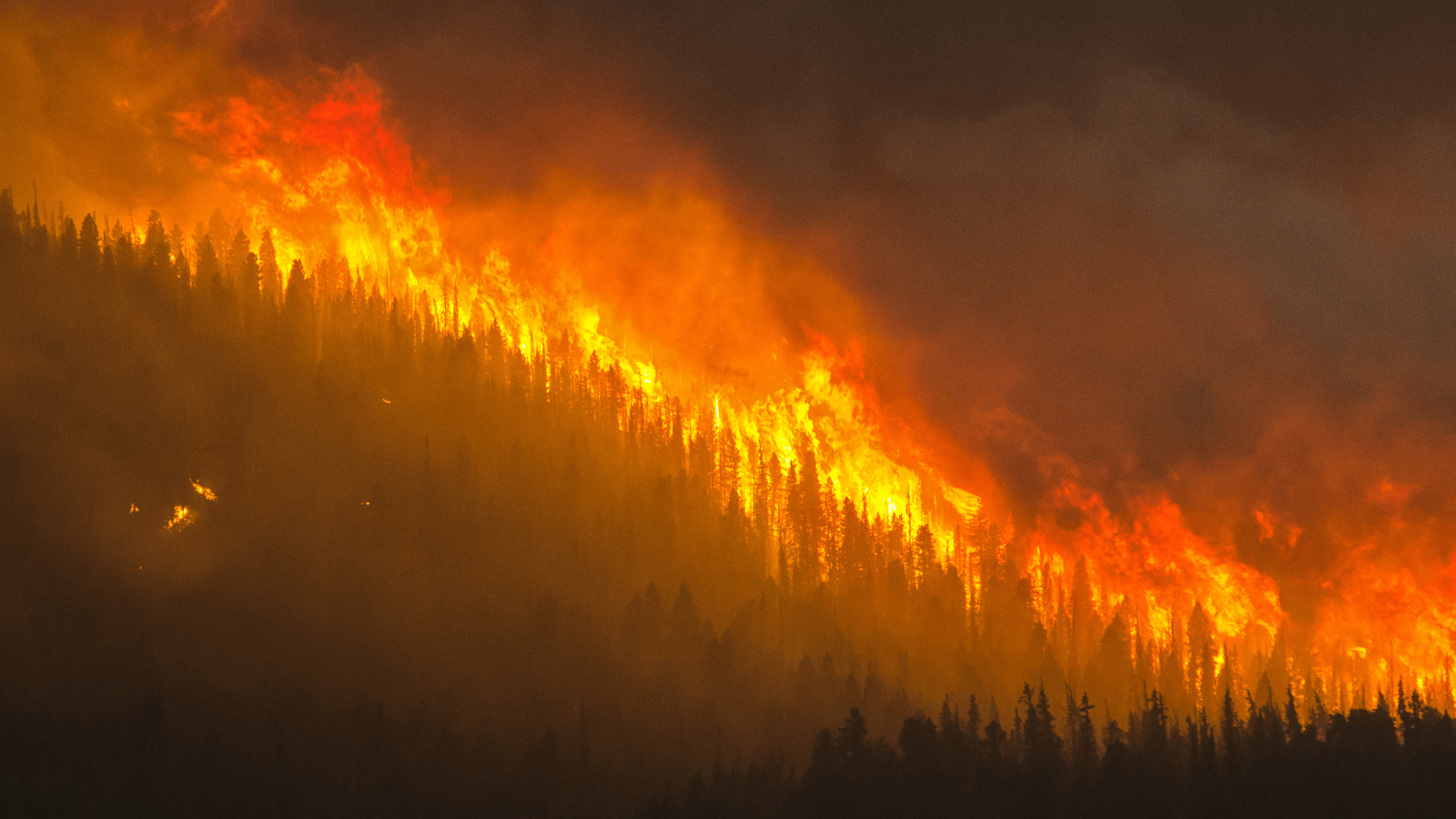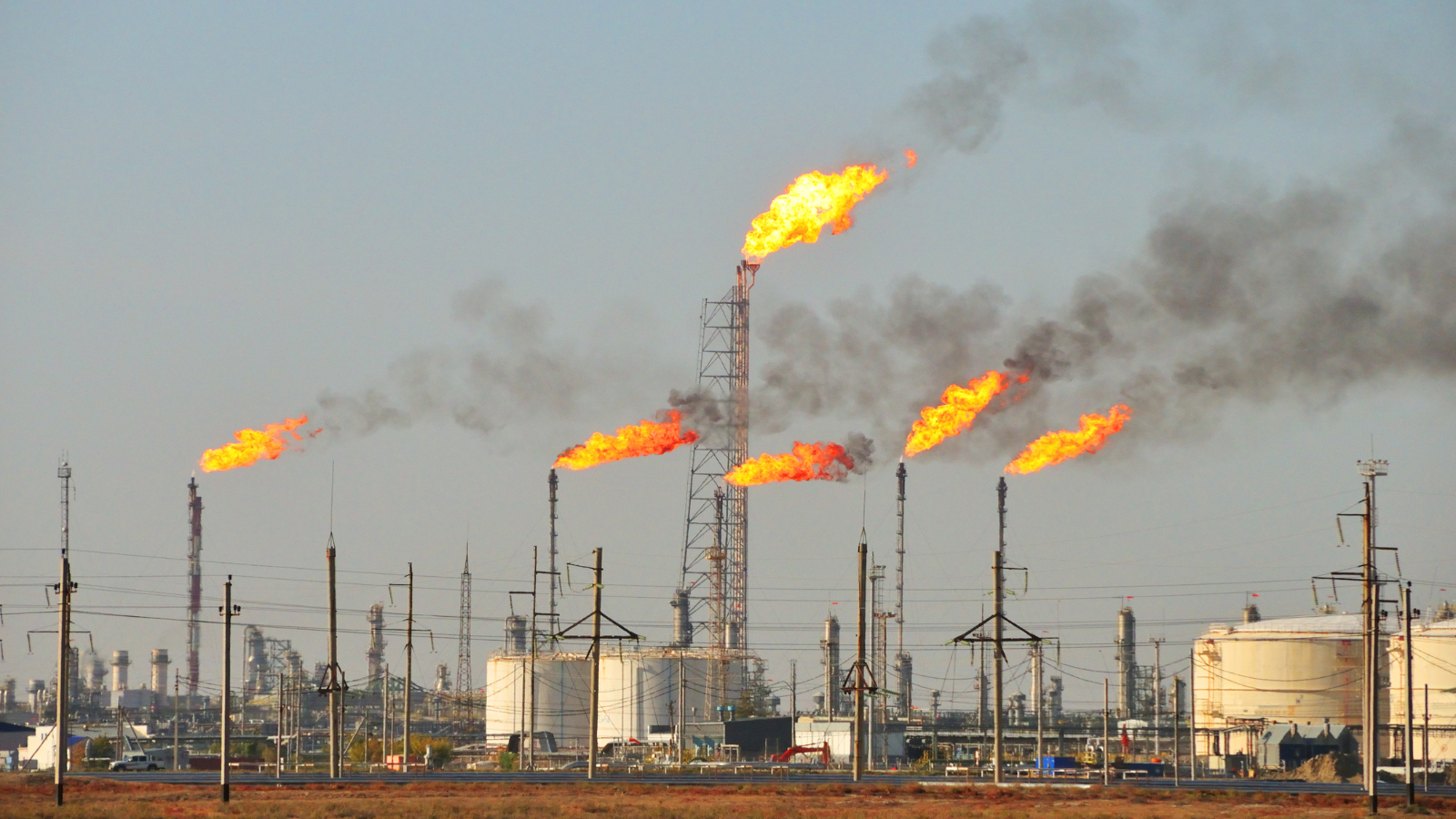
Jeremy Hiebert via Flickr | CC-BY-NC 2.0
This is Canada’s worst fire season on record

“I’ve never seen anything like this.”
Garret Howse, veteran firefighter, The Toronto Star
Act now
Bigger. Hotter. Faster. That’s how experts describe the abnormal wildfires raging through Canada.
Already, this year’s early fire season has forced tens of thousands from their homes and many more to suffer the lasting health risks of wildfire smoke. Indigenous communities, in particular, have seen some of the most serious damage.

Climate change — as a result of burning coal, oil, and gas — has created the perfect conditions for these “supercharged” wildfire seasons. And it’ll only get worse if we don’t do something.
Politicians have the power to slash carbon emissions and put us on the path to a safer future. But they’ll only act if we make it clear the public demands it.
While firefighters are bravely battling wildfires, it’s time for our MPs to step up too. People’s homes are burning down. Governments must stop the fossil fuel industry from pouring gasoline on the flames.
Help out
All of us need help at some point. If you’re able to support affected communities, the organizations below are accepting food, clothing, and monetary donations.
Mid-August saw the Northwest Territories declare a Territorial State of Emergency, with the capital city of Yellowknife and the neighbouring First Nations communities of Ndilo and Dettah evacuated.
The Grande Prairie Friendship Centre is open for all evacuees, serving meals and offering clothing and hygiene items. You can support by donating money, or dropping off blankets, toiletries, non-perishable food items, baby supplies, and other essentials at the GPFC.
You can also volunteer by emailing their volunteer coordinator at orrenanderson@gpfriendship.com.
One of our clients, the Mitchikanibikok Inik (Algonquins of Barriere Lake) First Nation, has had to evacuate many members from their traditional territory to escape nearby fires. Community members have evacuated to Ottawa, Gatineau, and Maniwaki.
The Maniwaki Native Friendship Center is coordinating much of the support and has set up an email money transfer donation line through their email info@health.rapidlake.ca. You can use this email for clothing or food donations too.
In May, an estimated 15,000 people from the communities of La Loche, Buffalo Narrows and Île-à-la-Crosse fled their homes, including those who rely on the support of their local Friendship Centres.
The AFCS has set up a fund to help those displaced by the wildfires in Northern Saskatchewan. You’ll be emailed a donation receipt to the address you provided.
We’ll update this list as the season progresses. Please note that some organizations may not issue tax receipts. Where possible, this will be indicated.
